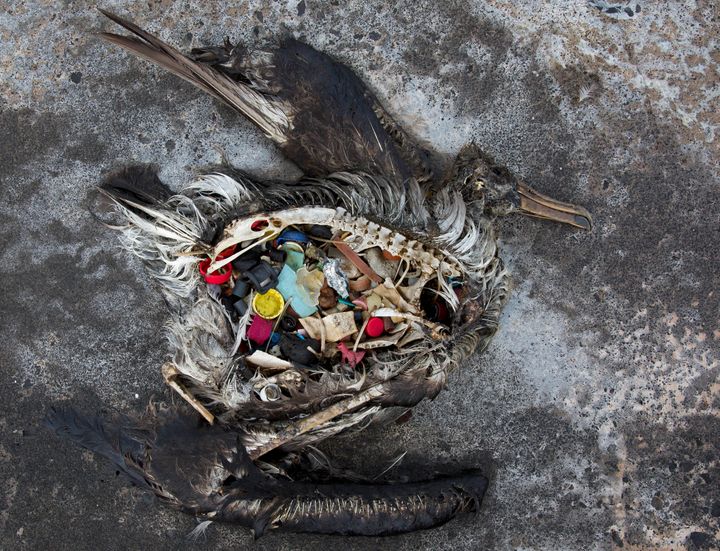Today in the Sixth Extinction

The story of how humans are turning the ocean into an ecologically barren trash-strewn watery desert is even more depressing than most contemporary environmental news.
Researchers studying baby fish off the coast of Hawaii announced a troubling discovery on Monday.
Minuscule plastic particles are clustering at the ocean’s surface and mixing with critical sources of the hatchlings’ food. In these important feeding areas, plastics outnumber baby fish 7 to 1, researchers found. Some of the larval fish are eating these particles, which scientists believe could hurt their chances of survival and threaten the delicate food web that supports larger ocean creatures and humans.
“We were shocked to find that so many of our [water] samples were dominated by plastics,” Jonathan Whitney, who co-led the study, said in a press release.
The researchers didn’t set out to report on plastics, said Whitney, a marine ecologist for the Joint Institute for Marine and Atmospheric Research in Honolulu. Rather, they intended to study the relatively unknown habits of baby fish across several species — including swordfish, flying fish and mahi-mahi — in their first days and weeks of life. But as he and his team began taking samples, trawling the ocean surface with a floating net, “we were finding more plastics than fish,” Whitney told HuffPost.
It’s worth noting two additional things here. First, none of this is inevitable. While some of the impact of all this plastic trash is going to permanently change the ecosystem, you could have a government-led multinational effort to clean up the oceans, working with the Global South on trash disposal and maintenance, and creating a broader global policy on oceans that really could make a huge difference, even given the size of the oceans. Second, your personal consumer decisions aren’t going to make the difference on this particular issue, not because they don’t matter, but because it’s not the U.S. dumping all this plastic, because it has solid waste management disposal techniques. So straw politics are basically worthless here, though if you want to move away from straws, there is certainly no harm in it, so long as disabled people still have access to them. This requires big government action and thus a faith in the potential of the efficacy of government and the mass movement to see it done.


